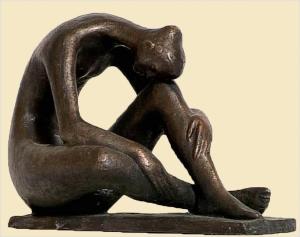
I cried today when I bought “Smart Food” in the grocery store. That cheesy popcorn was one of Nancy’s favorite snacks, and just thinking about that catapulted me into grief once again. I was purchasing it for my daughter Regina and her friends who were hanging out at our house after school. I’ve been apt to tear up at the grocery store, the traffic light, yoga lessons, in fact, just about everywhere these days. There are so many reminders that Nancy is permanently vacant from my life, at least in the physical realm (and I’m reserving judgment on the afterlife—haven’t heard from her yet).
But it makes me wonder: why haven’t I ever noticed people crying in the grocery store before? I can’t be the only widow, person who’s lost a child, whose world has been upended by divorce, by losing a home, a job, or whose relatives here or in other countries have been the victims of natural or unnatural disasters. Nor can I be the only one who responds to such calamities of life by tears. I wonder if I have been immune to the suffering of others, inoculated by my comfortable life with a stable partnership, two daughters, a nice home in a safe neighborhood, and a decent job? Sure I’ve had my own crosses to bear. With a sick partner for many years now, a labor-intensive job, and kids with needs–both special and ordinary–I have had my hands full. All these years, I’ve been huddling down into myself as I go about my shopping, single-mindedly pursuing my task of getting items off the grocery store shelves and into my basket, without taking notice of the sadness of other human beings around me.
Frequently I’ll make small talk with folks at the grocery store and other places, something that annoys the hell out of my kids. But I don’t think I probe beneath the surface of their superficial remarks. A friend of mine named Tami, also a lesbian widow, does probe beneath the surface in her interactions with strangers. While in the line to see a movie, she heard someone ask the woman behind her how she was doing. “Fine” the woman replied, but Tami heard in her voice that she was far from fine. She asked the woman: “Why aren’t you fine?” And the woman told her that she had just lost her husband of forty years to cancer. After which, they shared their individual stories and comforted each other. I want to be like Tami.
Recently, I’ve been reading Anne Lamott’s Stitches: A Handbook on Meaning, Hope, and Beyond. I’d long ago put self-help books behind me, not because I didn’t have problems but because I believed that I had no need for their clichéd object lessons. I could solve my problems on my own. I no longer have the arrogance of thinking that I don’t need help, solace, or inspiration from those wiser than myself—or even just wiser in ways that I am not. Desperation does that to you.
Lamott defends the “overly sensitive child” in her book. Chastised for being too sensitive as a child, she wonders if being sensitive to the many occasions of brutality and personal loss that is inherent in this life isn’t a reasonable response. Considered an overly sensitive child myself, I felt somewhat redeemed by her analysis. But I want to be overly sensitive not only to my own personal losses but to the losses experienced by others.
During the time period of Nancy’s last stage of life and her death, our nation witnessed the horrific shooting in Ferguson and its aftermath of urban turmoil and outrage in the city and beyond. I was aware of what was going on, but I skipped through the facebook posts and the news, numbly insensitive to the world’s greater cares in the light of my own personal tragedy. We can only experience so much pain at once, I guess. But I hope to reclaim my ability to care about the world beyond my own experience.
But, really, my personal goal is less lofty than that: I want to use my experience of loss to try to become that woman who, having cried in the grocery store, is more open to the suffering of the world. Maybe then, I will notice all of the others who are crying in the grocery store.



